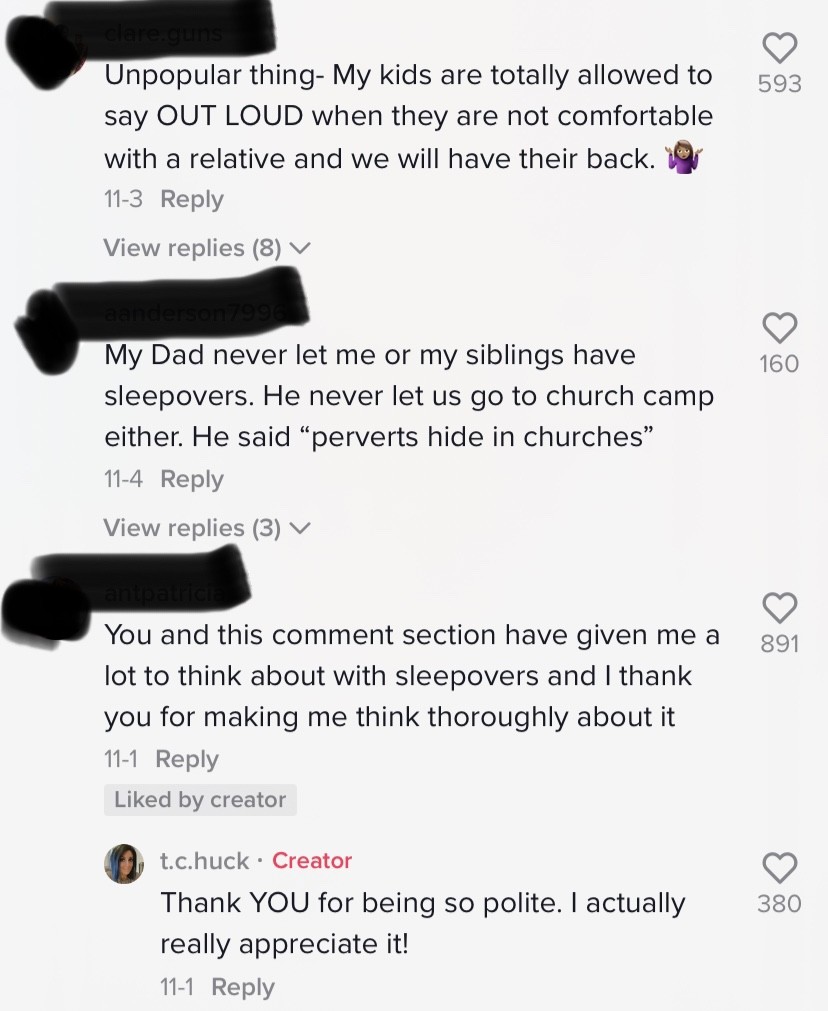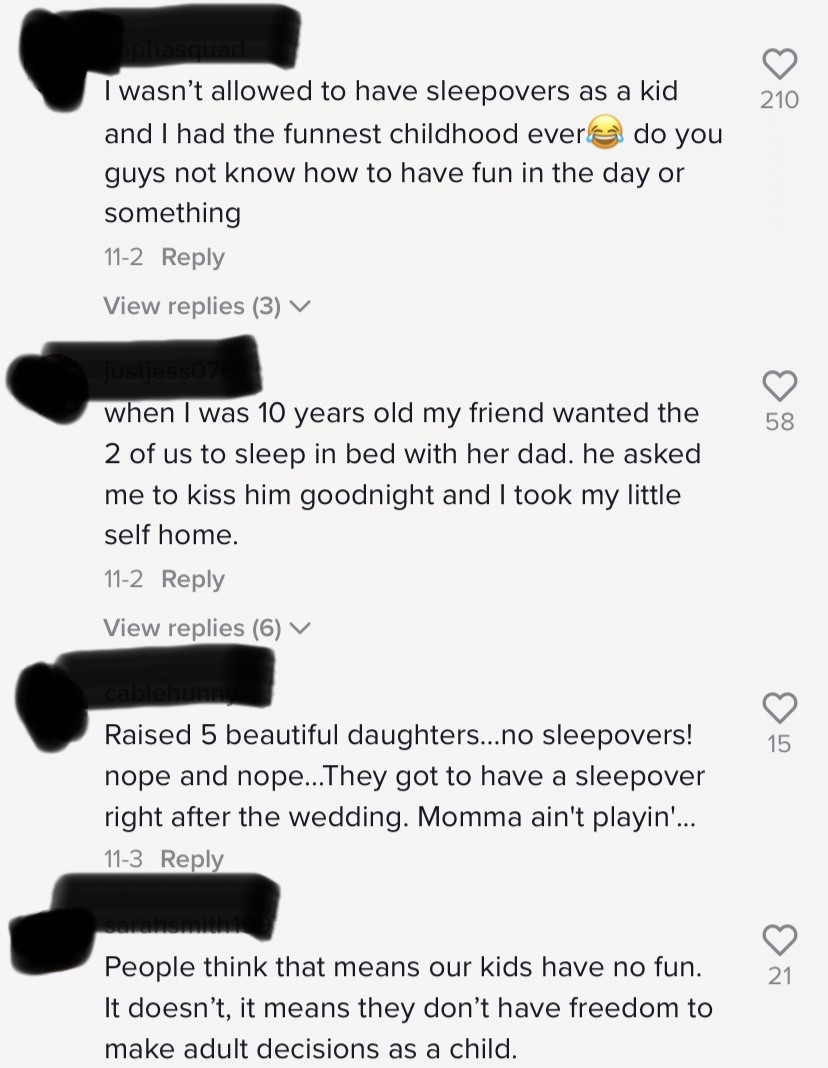In some ways, sleepovers almost feel like a childhood rite of passage. Who doesn’t remember staying up late with friends, watching movies and eating snacks, only to faint in their Disney Princess sleeping bag on the floor of their best friend’s finished basement? Well, a mom is going viral on TikTok and Instagram for sharing her “unpopular” take on kids and sleepovers – and she brings up some very valid points.
Tara Huck shared a quick video on TikTok about her “unpopular parenting views” last month, and even though the video was only seconds long, it sparked a weeks-long slumber party debate.
“I don’t allow sleepovers,” she captioned the video. She also mentions that as long as the homework and chores are done, she doesn’t limit screen time (neither do I, FWIW, and I wrote about it here), and if her kids don’t eat what she prepares for dinner they do not eat.
But it was the “no sleepover” thing that got other moms talking in the comments section.


Buzzfeed interviewed Huck about her video, where she explained that her two (school-aged) children don’t sleep at anyone else’s and no one sleeps at her house, to keep things fair.
“We organize outings later, the children can go to the homes of trusted families for gatherings, and then we pick them up when it’s time to go to bed,” she said.
She finally uploaded another TikTok that further clarified her position on the lack of sleepovers. “You can’t be sure that something won’t happen to your children at someone else’s,” she said.
And she is right. As parents we can’t control everything and coming to terms with this loss of control sometimes, especially for those of us who suffer from anxiety (hello, it’s me), can be so difficult. But we can controlling who we allow our children to live in and where they spend time, at least when they are young.
“There is gun safety, sexual assault, drugs, alcohol, intimidation, and so on. Huck said. “Children are the most vulnerable when they sleep. I’d rather not risk their safety just by sleeping at someone else’s house. I’m just trying to eliminate a very small factor that could potentially harm them.”
Darkness to Light, an organization that works to end child sexual abuse, has a helpful list of questions parents can refer to regarding sleepovers and decide if a child is ready for one. Preparation and vigilance, they say, are essential to differentiate a risky situation from a normal one.
The ubiquitous puzzle of parenting is balancing safety and fun, and the right amount of control over a given situation. Huck’s TikTok brought up a very important topic and hopefully sets the stage for all of us to have this conversation in our own homes.
Eight Questions to Ask Before Allowing Sleepovers
1. What would make my child, tween or teen “ready”?
Think about your child, his level of maturity, and how he managed to spend time away from you. You can also consider improving their preparation with some practical necessities like special dietary needs, cell phone, some comfort items. Ask your child what they might be.
2. How well do I know this family?
Think about the interactions you have had with the family. Have you seen how these parents react to their children in different situations? Do you know what their values are or what they can expose their children to and does that match your family? If you’ve had little to no interactions, how can you really know they’re safe?
3. What kind of adult supervision will there be and who else will be present?
Ask who will supervise and who else will be home for any part of your child’s stay. Keep in mind that about 1/3 of young people are sexually assaulted by another child, so think about other children who will be in the home as well.
4. What does their home look like?
Is it a place where my child will be comfortable? Is the layout suitable for security and surveillance? Do they have a swimming pool or do they own guns? What will the sleeping arrangements look like and do they have an open door policy during sleepovers?
5. Can I talk to these parent (s) about my concerns and needs?
If you cannot comfortably voice your concerns, how can you expect your child to feel safe in this home? It doesn’t hurt to ask if parents have had training in child protection, such as CPR and preventing child sexual abuse.
6. What are my hard and fast rules?
Obviously, no isolated one-on-one situation should be allowed under any circumstances. Beyond this rule, what about films? While drinking? Does your child need to register to get clearance if the original plans change? Think about your household rules that need to be extended to include another household.
7. What security and comfort contingencies can I put in place?
Talk to your child about the different scenarios they may encounter to help them prepare. Talk about possible scenarios and appropriate responses. What if you woke up in the middle of the night and were scared? What if Danny (older brother) asks you to hang out in his room? This is also a good time to consider sending a cell phone with your child, which will make it easier to make calls if they are ready to go home. Consider establishing a safe word so they can text you discreetly to pick them up, no questions asked.
8. What recording points can we include in the mix?
It may be a good idea to ask them to text once or twice during the evening, or to make a phone call before bed. After considering all of these questions, what does your gut tell you?
brandedmerck2021, parenting, ticking
